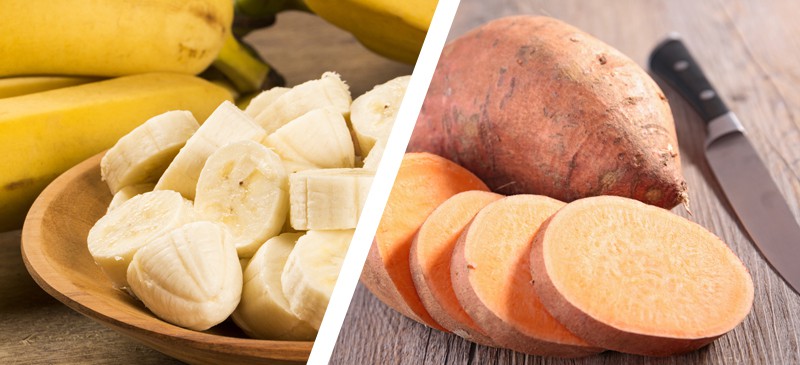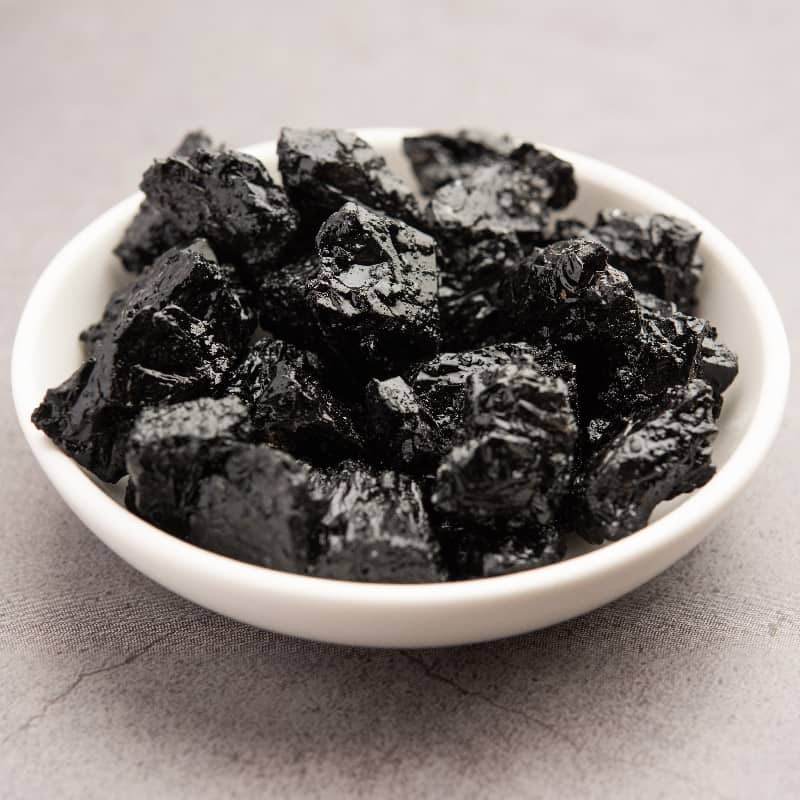This Dr. Axe content is medically reviewed or fact checked to ensure factually accurate information.
With strict editorial sourcing guidelines, we only link to academic research institutions, reputable media sites and, when research is available, medically peer-reviewed studies. Note that the numbers in parentheses (1, 2, etc.) are clickable links to these studies.
The information in our articles is NOT intended to replace a one-on-one relationship with a qualified health care professional and is not intended as medical advice.
This article is based on scientific evidence, written by experts and fact checked by our trained editorial staff. Note that the numbers in parentheses (1, 2, etc.) are clickable links to medically peer-reviewed studies.
Our team includes licensed nutritionists and dietitians, certified health education specialists, as well as certified strength and conditioning specialists, personal trainers and corrective exercise specialists. Our team aims to be not only thorough with its research, but also objective and unbiased.
The information in our articles is NOT intended to replace a one-on-one relationship with a qualified health care professional and is not intended as medical advice.
Potassium Benefits for Heart, Brain, Muscles and More
May 24, 2019

With potassium benefits ranging from reduced blood pressure to enhanced bone health, this key mineral is absolutely essential to just about every aspect of health. Not only that, but a deficiency in potassium can cause a slew of serious side effects, including heart problems, bloating, cramps and more.
So what does potassium do in your body? What happens if you have a low potassium level? And what foods are high in potassium? Keep reading for everything you need to know about the potential potassium benefits and why you may want to add more foods high in potassium into your diet.
What Is Potassium?
What is potassium and why do we need it? Potassium is an essential nutrient used to maintain fluid and electrolyte balance in the body. Potassium is also the third most abundant mineral in the body and a required mineral for the function of several organs, including the heart, kidneys, brain and muscular tissues. It also plays an important role in keeping the body hydrated and works with sodium to support cellular function with your body’s sodium-potassium pump, among other potassium benefits.
Symptoms of low potassium — aka hypokalemia — can be incredibly dangerous and can include severe headaches, dehydration, heart palpitations and swelling of glands and tissues. Potassium from natural food sources, like the list of potassium-rich foods below, is considered to very safe and healthy with minimal risk of side effects.
7 Potassium Benefits
1. Boosts Heart Health
Potassium is absolutely essential to heart health and plays a central role in regulating your heartbeat to ensure that your heart is working efficiently. In fact, if you’re having trouble with your heart rhythm, a potassium deficiency could easily play a role.
Studies show that even minute alterations in potassium levels may be associated with a higher risk of having a slow or fast heart rate, which can increase the risk of even more serious heart problems.
2. Prevents Cramps
One of the main benefits of consuming high-potassium foods and electrolyte drinks is decreased muscle cramping and improved muscle strength. Muscle weakness, muscle aches and muscle cramps are common side effects of low potassium levels.
This is especially common when athletes become dehydrated and don’t consume enough potassium-rich foods before and after exercise. Not only that, but potassium can also be especially beneficial for the treatment of PMS cramps as well.
3. Reduces Risk of Stroke
One of the top potassium benefits is its ability to promote heart health and reduce the risk of stroke. Several observational studies have actually found that those with high potassium levels experience a lower risk of stroke. The risk of ischemic stroke, in particular, is lower in high potassium consumers.
Interestingly enough, a study published in the Journal of the American Heart Association even showed that consuming at least 3,500 milligrams of potassium each day was linked to a lower risk of stroke.
4. Lowers Blood Pressure
According to a recently updated publication from Harvard Medical School, “the average American diet delivers too much sodium and too little potassium,” which is highly counterproductive when it comes to discouraging high blood pressure. This is because potassium, in combination with other minerals like calcium and magnesium, prevents fluid from building up in cells. A buildup of fluid within cells is what elevates blood pressure and can result in heart palpitations, narrowed arteries, scarring and poor circulation.
Studies show that a diet high in potassium, especially potassium from fruits and vegetables, can help lower blood pressure. This is especially true if the increase in potassium foods is not accompanied by an increase in high-sodium foods.
5. Improves Cellulite Appearance
Fluid retention is one of the major potential causes of cellulite. Unfortunately, most people consume far too much sodium and not nearly enough potassium. Sodium brings nutrients into your cells whereas potassium helps flush excess waste out of your cells.
For this reason, if you reduce sodium intake and start consuming potassium-rich foods, you could potentially help reduce the appearance of cellulite.
6. Protects Against Osteoporosis
Research has found a direct relationship between bone density and increased intake of dietary potassium. Potassium citrate and bicarbonate, in particular, are two potassium salts that are naturally found in foods high in potassium, and a recent study reveals that these potassium salts can actually improve the health of your bones and ward off osteoporosis.
A 2015 study published in the journal Osteoporosis International found that a high consumption of potassium salts significantly decreases the urinary excretion of both acid and calcium. Why is this significant? Because the potassium salts actually help the bones not to reabsorb acid and also to maintain vital mineral content.
This means that consuming more foods high in potassium could potentially help preserve your bones and prevent serious bone-related health issues like osteoporosis.
7. Supports Healthy Growth and Development
Your body actually requires potassium in order to process and utilize the carbohydrates you consume. As an a child or an adult, you also require potassium to build protein and muscle. If you’re younger in age and your body is still growing, then potassium helps ensure that your growth continues at a normal, healthy rate.
Related: What Is Acesulfame Potassium and Is It Safe?
Best Food Sources
Here are 10 of the best potassium-rich foods:
- White Beans — 1 cup cooked: 1,004 milligrams
- Lima Beans — 1 cup cooked: 955 milligrams
- Avocado — 1 whole: 690 milligrams
- Broccoli — 1 cup cooked: 458 milligrams
- Sweet Potato — 1 medium: 438 milligrams
- Bananas — 1 medium: 422 milligrams
- Salmon — 3 ounces: 416 milligrams
- Peas — 1 cup cooked: 384 milligrams
- Sardines — 1 can/3.75 grams: 365 milligrams
- Grapefruit — 1 whole: 354 milligrams
Related: Top 15 Potassium-Rich Foods
Supplementation and Dosage Recommendations
So should you use a potassium supplement to take advantage of the many potential potassium benefits out there?
Potassium pills usually aren’t recommended for normal, healthy adults. They may be given under certain conditions to people who have disorders that stop them from absorbing potassium effectively, but otherwise it’s advised to get this key mineral from foods high in potassium first and foremost.
In some cases there is such thing as “too much of a good thing,” and high potassium levels can cause complications just like low potassium can. Because potassium balance relies on healthy kidney function, but many people suffer from somewhat impaired kidney function as they age, potassium supplements are sometimes considered dangerous.
To be cautious, the Food and Drug Administration (FDA) limits over-the-counter potassium supplements (including multivitamin/mineral pills) to less than 100 milligrams, which is significantly less than the recommended daily value for most age groups. If you do decide to take a potassium supplement, it’s best to work with your doctor to determine the right dosage for you based on your personal needs and health history.
As of 2019, an expert committee with the National Academies of Sciences, Engineering, and Medicine established updated recommendations for potassium consumption, which can vary based on age and gender.
Here are the most recent recommendations for potassium:
- 0–6 months: 400 milligrams/day
- 7–12 months: 860 milligrams/day
- 1–3 years: 2,000 milligrams/day
- 4–8 years: 2,300 milligrams/day
- 9–13 years: 2,500 milligrams/day for males and 2,300 milligrams/day for females
- 14–18 years: 3,000 milligrams/day for males and 2,300 milligrams/day for females
- Over 19 years: 3,400 milligrams/day for males and 2,600 milligrams/day for females
- Women who are pregnant or breastfeeding: 2,800–2,900 milligrams/day
Athletes who work out for more than an hour most days may need even more potassium, and intakes vary based on muscle mass, activity levels, etc.
Risks and Side Effects
Despite the many potential potassium benefits, more is not always better when it comes to this essential nutrient. Although consuming plenty of foods rich in potassium is unlikely to have any adverse effects on health for most adults, using supplements can increase the risk of side effects.
Those with kidney problems, in particular, are often advised to follow a low potassium diet to avoid complications. In some cases, your doctor may advise you to reduce potassium consumption as well as other nutrients like phosphorus and sodium, as an impairment in kidney function can cause these nutrients to build up in the body. Older adults and those with diabetes, chronic renal insufficiency, severe heart failure or adrenal insufficiency are also at a higher risk for having high potassium.
What happen if potassium is high? High potassium, also known as hyperkalemia, can cause weakness, fatigue, irregular heartbeat, chest pain and trouble breathing. It can also cause more serious side effects, including paralysis or even heart failure.
If you’re taking any medications or have any underlying health conditions, talk to your doctor before starting supplementation or making any major modifications to your diet.
Dangers of Low Potassium
Your body continuously performs a balancing act between two electrolytes: potassium and sodium. When sodium levels go up, potassium levels go down, and when sodium levels go down, potassium levels go up. It’s important not to overdo it on dietary sodium while it’s also crucial to maintain normal potassium levels.
A deficiency in potassium can lead to:
- Fatigue
- Constipation
- Irritability
- Muscle cramps
- Weight gain
- Blood pressure problems
- Heart palpitations
- Cellulite buildup
- Nausea
- Arthritis
- Stomach cramps
- Bloating
- Abnormal psychological behavior, including depression, confusion or hallucinations
The main culprits that can cause hypokalemia are endurance exercise without proper hydration, vomiting, diarrhea and a diet low in fruits and vegetables. Other causes of low potassium levels include alterations in kidney function or hormone levels. Medications like diuretics and laxatives can also make potassium levels too low.
Unless you’re on dialysis, receiving cancer treatment or have another special condition, overdose of potassium from natural sources is rare — however, it’s possible to consume too much potassium via potassium salts, such as potassium chloride, which can lead to nausea and vomiting.
Recipes
With so many healthy yet tasty potassium sources to choose from, the recipe options are practically endless. Not only can these help you up your potassium intake, but you’re sure to find that these recipes make it really enjoyable to get your daily intake of this essential mineral.
Here are some recipe ideas that make at least one potassium food source as the star of the show:
- Sweet Potato Hash Recipe
- Avocado Salad Wrap Recipe
- Grecian Spinach Recipe
- Roasted Acorn Squash Recipe
- Strawberry Banana Smoothie Recipe
Final Thoughts
- There’s no doubt that potassium is an absolutely essential part of a healthy diet. Not only is it an essential mineral, but it’s also an electrolyte. With this double identity comes a plethora of potassium benefits when you consume enough on a regular basis.
- The opposite is also true — if you don’t get enough potassium in your diet regularly, then you open yourself up to a lot of unwanted potassium deficiency symptoms, including renal issues and more.
- Potassium benefits include supporting heart health, preventing cramps, reducing risk of stroke and more.













